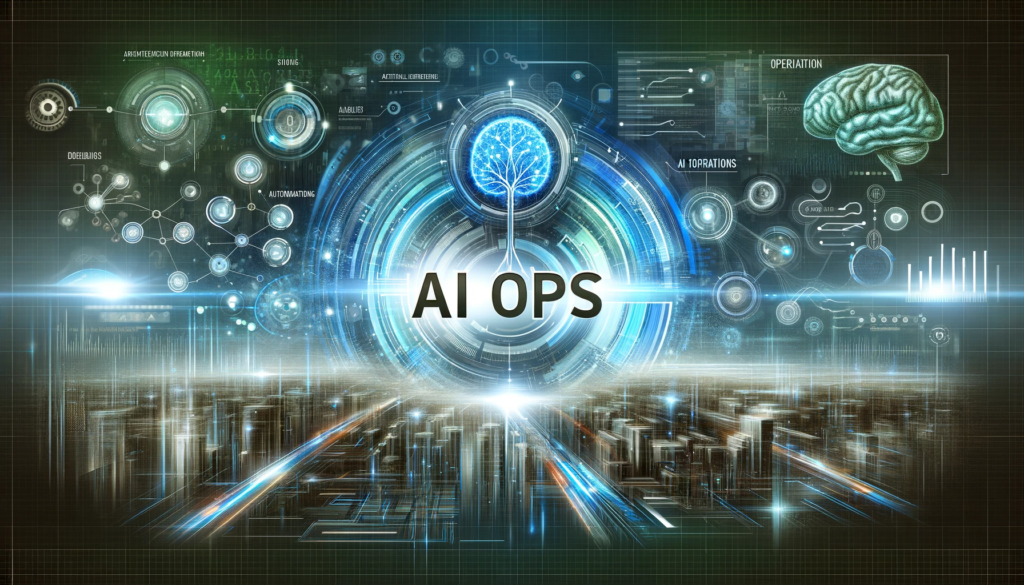AI Ops: Simplifying Complex IT Operations with Artificial Intelligence

In today’s fast-paced digital world, managing IT operations can be like navigating a vast, ever-changing ocean. This is where AI Ops comes in, acting as the high-tech compass that guides ships through these turbulent waters. Let’s dive into the concept of AI Ops, exploring it in a way that even beginners can easily grasp, using simple examples and analogies.
What is AI Ops?
AI Ops stands for Artificial Intelligence for IT Operations. Imagine a busy airport where thousands of people, flights, and baggage systems need to be managed seamlessly. AI Ops is like the advanced control center in this airport, using artificial intelligence to monitor, manage, and resolve complex IT issues.
How Does AI Ops Work?
To understand AI Ops, consider your smartphone. It learns your preferences, suggests apps you might like, and even predicts your text messages. AI Ops does something similar for IT systems. It collects massive amounts of operational data, learns patterns, predicts problems, and suggests solutions.

Key Components of AI Ops
- Data Collection: AI Ops starts by gathering data, much like a librarian collects books. This data comes from various IT sources, including servers, databases, and applications.
- Machine Learning: The collected data is then analyzed using machine learning, akin to a chef tasting ingredients to understand what’s good or needs fixing.
- Automation: Based on this analysis, AI Ops automates responses. It’s like a thermostat automatically adjusting the room temperature based on your preferences.
Benefits of AI Ops
- Efficiency: AI Ops enhances efficiency by automating routine tasks. Think of it as having a smart assistant who takes care of repetitive chores, so you can focus on more important things.
- Prediction and Prevention: Like a weather forecast that warns about a storm, AI Ops can predict IT issues before they happen, preventing disruptions.
- Faster Resolution: When problems do occur, AI Ops is like a skilled doctor who quickly diagnoses and treats the issue, reducing downtime.

AI Ops in Action: A Simple Example
Imagine a company’s website suddenly slows down. AI Ops acts like a detective, analyzing clues (data) to find the cause (maybe a surge in traffic or a malfunctioning server). It then either fixes the issue automatically or alerts the human IT team with specific insights.
The Future of AI Ops
As technology evolves, AI Ops will become more like a smart, self-driving car, navigating the complexities of IT operations with minimal human intervention. This will free up IT professionals to focus on innovation rather than just maintenance.
Conclusion
AI Ops is revolutionizing how businesses manage their IT operations. By automating complex tasks and providing predictive insights, it helps organizations sail smoothly through the digital seas. As AI technology continues to advance, AI Ops will play an increasingly critical role in the IT landscape.





